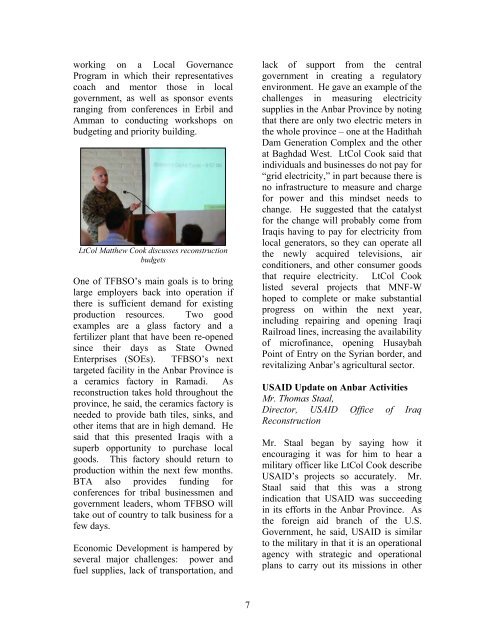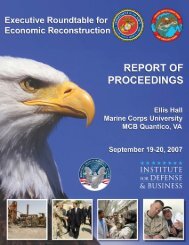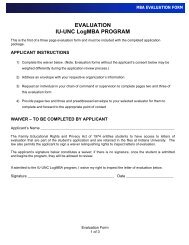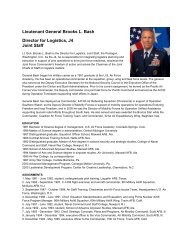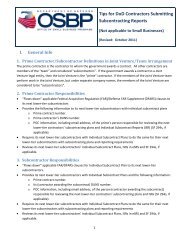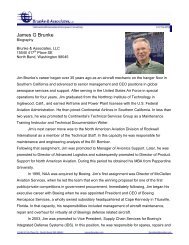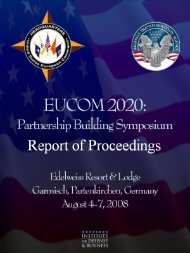MNF-W (Designate) - Institute for Defense & Business
MNF-W (Designate) - Institute for Defense & Business
MNF-W (Designate) - Institute for Defense & Business
Create successful ePaper yourself
Turn your PDF publications into a flip-book with our unique Google optimized e-Paper software.
working on a Local Governance<br />
Program in which their representatives<br />
coach and mentor those in local<br />
government, as well as sponsor events<br />
ranging from conferences in Erbil and<br />
Amman to conducting workshops on<br />
budgeting and priority building.<br />
LtCol Matthew Cook discusses reconstruction<br />
budgets<br />
One of TFBSO’s main goals is to bring<br />
large employers back into operation if<br />
there is sufficient demand <strong>for</strong> existing<br />
production resources. Two good<br />
examples are a glass factory and a<br />
fertilizer plant that have been re-opened<br />
since their days as State Owned<br />
Enterprises (SOEs). TFBSO’s next<br />
targeted facility in the Anbar Province is<br />
a ceramics factory in Ramadi. As<br />
reconstruction takes hold throughout the<br />
province, he said, the ceramics factory is<br />
needed to provide bath tiles, sinks, and<br />
other items that are in high demand. He<br />
said that this presented Iraqis with a<br />
superb opportunity to purchase local<br />
goods. This factory should return to<br />
production within the next few months.<br />
BTA also provides funding <strong>for</strong><br />
conferences <strong>for</strong> tribal businessmen and<br />
government leaders, whom TFBSO will<br />
take out of country to talk business <strong>for</strong> a<br />
few days.<br />
Economic Development is hampered by<br />
several major challenges: power and<br />
fuel supplies, lack of transportation, and<br />
7<br />
lack of support from the central<br />
government in creating a regulatory<br />
environment. He gave an example of the<br />
challenges in measuring electricity<br />
supplies in the Anbar Province by noting<br />
that there are only two electric meters in<br />
the whole province – one at the Hadithah<br />
Dam Generation Complex and the other<br />
at Baghdad West. LtCol Cook said that<br />
individuals and businesses do not pay <strong>for</strong><br />
“grid electricity,” in part because there is<br />
no infrastructure to measure and charge<br />
<strong>for</strong> power and this mindset needs to<br />
change. He suggested that the catalyst<br />
<strong>for</strong> the change will probably come from<br />
Iraqis having to pay <strong>for</strong> electricity from<br />
local generators, so they can operate all<br />
the newly acquired televisions, air<br />
conditioners, and other consumer goods<br />
that require electricity. LtCol Cook<br />
listed several projects that <strong>MNF</strong>-W<br />
hoped to complete or make substantial<br />
progress on within the next year,<br />
including repairing and opening Iraqi<br />
Railroad lines, increasing the availability<br />
of microfinance, opening Husaybah<br />
Point of Entry on the Syrian border, and<br />
revitalizing Anbar’s agricultural sector.<br />
USAID Update on Anbar Activities<br />
Mr. Thomas Staal,<br />
Director, USAID Office of Iraq<br />
Reconstruction<br />
Mr. Staal began by saying how it<br />
encouraging it was <strong>for</strong> him to hear a<br />
military officer like LtCol Cook describe<br />
USAID’s projects so accurately. Mr.<br />
Staal said that this was a strong<br />
indication that USAID was succeeding<br />
in its ef<strong>for</strong>ts in the Anbar Province. As<br />
the <strong>for</strong>eign aid branch of the U.S.<br />
Government, he said, USAID is similar<br />
to the military in that it is an operational<br />
agency with strategic and operational<br />
plans to carry out its missions in other


